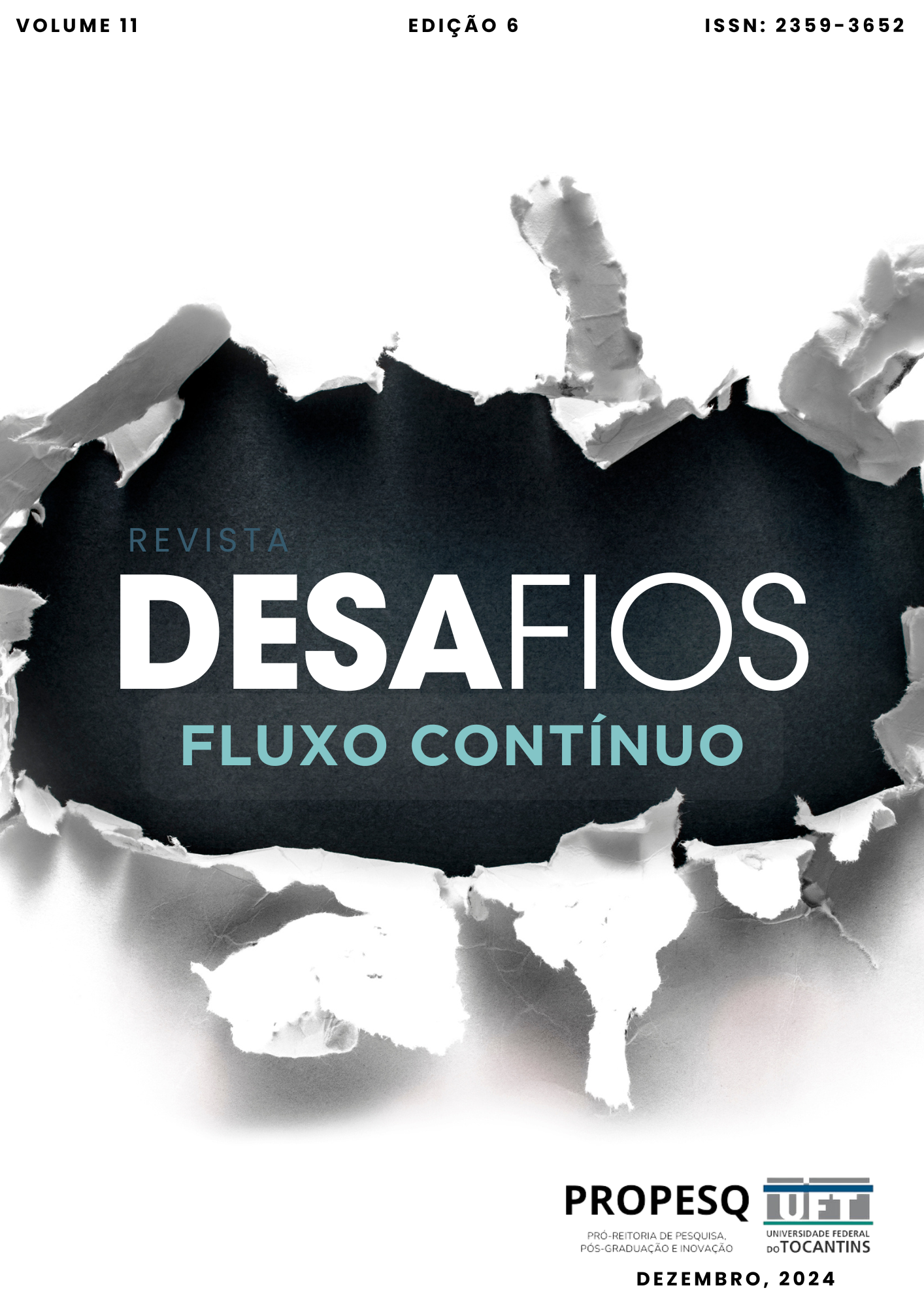EFEITOS DA TOXICIDADE DO HERBICIDA NORTON® NA GERMINAÇÃO E CRESCIMENTO EM CAPSICUM ANNUUM
DOI:
https://doi.org/10.20873/2024_DEZ_16971Resumo
Dos herbicidas mais utilizados no Brasil, as formulações combinadas com 2,4–D e Picloram como princípios ativos geram preocupações quanto ao resíduo final, que podem ser rios ou solos, impactando negativamente a saúde humana e ambiental. O objetivo deste estudo foi avaliar o efeito tóxico do herbicida Norton® com o uso de um organismo bioindicador vegetal Capsicum annuum. A toxicidade do pesticida foi avaliada através das concentrações de 1, 3, 5, 10, 25, 50, 75 e 100%, com exposição de 7 dias. Quantificou-se o número de sementes germinadas e o comportamento de germinação durante o bioensaio. Às sementes germinadas, mediu-se o comprimento das raízes. As sementes foram transferidas para vasos contendo adulbo vegetal, e monitoras durante 4 meses. Houve efeitos tóxicos na germinação e crescimento radicular. Às sementes expostas às baixas concentrações, houve grande número de germinação, entretanto, com redução do comprimento radicular. Houve morte das plantas expostas ao herbicida, principalmente as submetidas as maiores concentrações. Nas plantas expostas a concentrações minimas do herbicida, houve alterações na morfologia foliar e crescimento da planta. Portanto, foi evidente que a diluição do pesticida, mesmo em baixas concentrações causam toxicidade e morte dos indivíduos a longo prazo.
Downloads
Publicado
Como Citar
Edição
Seção
Licença
Copyright (c) 2024 Ducilene do Carmo da Silva, Marcelo Gustavo Paulino

Este trabalho está licenciado sob uma licença Creative Commons Attribution-NonCommercial 4.0 International License.
Autores que publicam nesta revista concordam com os seguintes termos:
1. Autores mantém os direitos autorais e concedem à revista o direito de primeira publicação, com o trabalho simultaneamente licenciado sob a Creative Commons Attribution License (CC BY-NC 4.0), permitindo o compartilhamento do trabalho com reconhecimento da autoria do trabalho e publicação inicial nesta revista.
2. Autores têm autorização para assumir contratos adicionais separadamente, para distribuição não-exclusiva da versão do trabalho publicada nesta revista (ex.: publicar em repositório institucional ou como capítulo de livro), com reconhecimento de autoria e publicação inicial nesta revista.
3. Autores têm permissão e são estimulados a publicar e distribuir seu trabalho online (ex.: em repositórios institucionais ou na sua página pessoal) a qualquer ponto posterior ao processo editorial.
4. Além disso, o AUTOR é informado e consente com a revista que, portanto, seu artigo pode ser incorporado pela DESAFIOS em bases e sistemas de informação científica existentes (indexadores e bancos de dados atuais) ou a existir no futuro (indexadores e bancos de dados futuros), nas condições definidas por este último em todos os momentos, que envolverá, pelo menos, a possibilidade de que os titulares desses bancos de dados possam executar as seguintes ações sobre o artigo:
a. Reproduzir, transmitir e distribuir o artigo, no todo ou em parte sob qualquer forma ou meio de transmissão eletrônica existente ou desenvolvida no futuro, incluindo a transmissão eletrônica para fins de pesquisa, visualização e impressão;
b. Reproduzir e distribuir, no todo ou em parte, o artigo na impressão.
c. Capacidade de traduzir certas partes do artigo.
d. Extrair figuras, tabelas, ilustrações e outros objetos gráficos e capturar metadados, legendas e artigo relacionado para fins de pesquisa, visualização e impressão.
e. Transmissão, distribuição e reprodução por agentes ou autorizada pelos proprietários de distribuidoras de bases de dados.
f. A preparação de citações bibliográficas, sumários e índices e referências de captura relacionados de partes selecionadas do artigo.
g. Digitalizar e / ou armazenar imagens e texto de artigo eletrônico.


